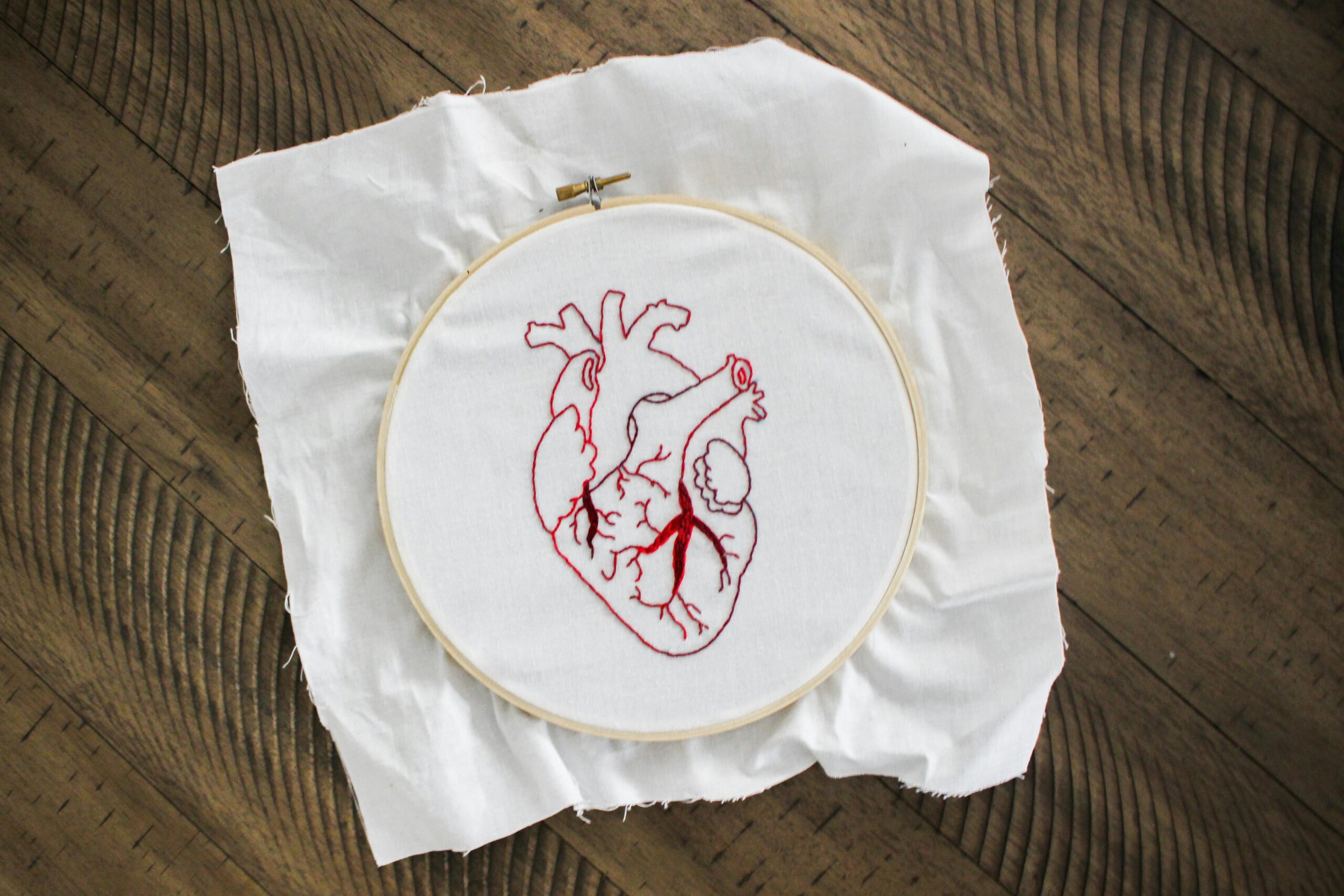Cardiovascular disease remains the leading cause of death worldwide, yet experts are still debating its root cause. While nearly everyone agrees that diet and lifestyle play a central role, there are two very different models of heart disease that drive contrasting interpretations of risk factors and treatment.
These are the Lipid Hypothesis and the Inflammation Hypothesis.
Let’s explore each one, how they differ, and what they mean for your health.
🧈 The Lipid Hypothesis: Cholesterol Is the Culprit
This is the traditional, widely accepted theory promoted by most mainstream medical organizations.
Core Idea:
High levels of LDL cholesterol (especially small, dense particles) contribute directly to plaque buildup in arteries, leading to atherosclerosis, heart attacks, and strokes.
Supporting Evidence:
- Large epidemiological studies show that elevated LDL is associated with increased cardiovascular risk.
- Statins, which lower LDL, reduce heart attack risk in many patients.
- Plaques found in coronary arteries contain cholesterol.
Dietary Implications (Lipid Hypothesis):
- Low saturated fat intake
- Low dietary cholesterol
- Emphasis on whole grains, fruits, vegetables, and lean proteins
- Low-fat dairy, plant-based oils, and omega-3s
This model often promotes the “heart-healthy diet” seen in AHA or Mediterranean-style diets.
🔥 The Inflammation Hypothesis: It’s Not the Fat, It’s the Fire
The newer, more metabolic-focused theory challenges the idea that cholesterol alone causes heart disease.
Core Idea:
Heart disease begins with chronic inflammation that damages the arterial lining. LDL may contribute, but only in the context of an already inflamed system. The root cause lies in metabolic dysfunction—insulin resistance, high blood sugar, and oxidative stress.
Supporting Evidence:
- People with normal LDL still have heart attacks—especially if inflammation markers like CRP are elevated.
- Statins reduce cardiovascular risk partly due to anti-inflammatory effects, not just LDL lowering.
- Triglyceride/HDL ratios and fasting insulin levels are often better predictors of heart risk than LDL alone.
Dietary Implications (Inflammation Hypothesis):
- Avoid refined carbs, sugar, ultra-processed foods, and especially industrial seed oils (like canola, soybean, and corn oil)
- Embrace a low-carb, whole-food or paleo/keto-style diet
- Include healthy saturated fats (e.g., grass-fed meat, coconut oil, butter)
- Focus on reducing insulin resistance and systemic inflammation
Under this model, higher LDL levels (especially in lean, active individuals on low-carb or ketogenic diets) are not necessarily dangerous—especially if triglycerides are low, HDL is high, and glucose is stable.
🔬 The Biomarker Battle: It’s About More Than LDL
Here’s where it gets interesting: both models now acknowledge that context matters.
Key markers to consider beyond just LDL include:
- HDL/LDL ratio
- Triglyceride/HDL ratio (under 2:1 is ideal)
- Fasting glucose and insulin
- High-sensitivity CRP (hs-CRP)
- LDL particle size and count (LDL-P)
- ApoB, a marker for total atherogenic particle count
For instance, someone with:
- LDL: 160 mg/dL
- HDL: 75 mg/dL
- Triglycerides: 60 mg/dL
- Fasting glucose: 85 mg/dL
…may be at much lower risk than someone with:
- LDL: 120 mg/dL
- HDL: 40 mg/dL
- Triglycerides: 180 mg/dL
- Glucose: 110 mg/dL
Even though the second person has “better” LDL by conventional standards, their overall metabolic profile is far worse.
🧠 What Does the Research Say Today?
Modern cardiology is beginning to shift from a cholesterol-centric model toward a more metabolic health-focused understanding. That said, large institutions still largely adhere to the lipid hypothesis due to decades of research and pharmaceutical frameworks.
Many now believe the answer lies somewhere in the overlap:
- LDL likely plays a contributing role, especially in highly inflamed or metabolically unhealthy bodies.
- Inflammation, oxidative stress, and insulin resistance create the conditions for LDL to become dangerous.
- Diet and lifestyle choices that reduce inflammation and metabolic dysfunction may improve cardiovascular outcomes even if LDL levels don’t drop.
💡 Bottom Line: Which Path Should You Follow?
It depends on your individual risk profile, labs, and lifestyle.
If you’re:
- Overweight or sedentary
- Consuming lots of processed foods
- Struggling with insulin resistance or high blood pressure
…then addressing inflammation and metabolic dysfunction should be a priority.
If you’re:
- Lean, active, and eating a clean, low-carb diet
- Seeing high LDL but excellent HDL/triglyceride/glucose numbers
- Working with a knowledgeable practitioner
…then higher LDL may not be inherently dangerous in your case.
✅ Actionable Tips for Either Approach
- Cut ultra-processed foods (they’re bad in both models)
- Track more than just LDL — get a full panel including triglycerides, HDL, glucose, CRP, insulin, and possibly ApoB
- Eat real, nutrient-dense food — whether you go high-fat or moderate-carb, prioritize quality
- Get moving — physical activity lowers both cholesterol and inflammation
- Manage stress and sleep — both impact inflammation more than most realize
🩺 Final Thoughts
We may not have a one-size-fits-all answer to what causes heart disease, but one thing is clear: context matters. A narrow focus on LDL alone may miss the bigger picture—especially in an era where metabolic disease is exploding.
A growing number of clinicians and researchers believe it’s time to move beyond “LDL = bad” and toward a more nuanced, data-driven approach that looks at the whole metabolic ecosystem.
After all, your heart doesn’t exist in a vacuum—it lives in a body shaped by what you eat, how you move, and how well your systems work together.
📚 Recommended Books for Further Understanding
🧈 Books Supporting or Exploring the Lipid Hypothesis
- The Great Cholesterol Con by Malcolm Kendrick
- Challenges the lipid hypothesis and critiques the medical establishment’s embrace of statin therapy.
- The Cholesterol Wars: The Skeptics vs. the Preponderance of Evidence by Daniel Steinberg
- Written by one of the pioneers in cholesterol research, this book defends the lipid hypothesis and chronicles its scientific evolution.
- Lipidology: From Biochemistry to Clinical Practice by Maciej Banach and Peter E. Penson
- A more technical overview of lipid science, recommended for readers with a clinical or scientific interest.
🔥 Books on Inflammation, Metabolic Health, and Alternative Theories
- The Big Fat Surprise: Why Butter, Meat and Cheese Belong in a Healthy Diet by Nina Teicholz
- Investigates how saturated fat was vilified and presents evidence supporting traditional, high-fat diets.
- Good Calories, Bad Calories by Gary Taubes
- A foundational book that critiques the low-fat dietary dogma and builds a case for the carbohydrate-insulin model of disease.
- Metabolical: The Lure and the Lies of Processed Food, Nutrition, and Modern Medicine by Robert Lustig, MD
- Focuses on how processed foods and sugar drive inflammation and metabolic dysfunction.
- Why We Get Sick: The Hidden Epidemic at the Root of Most Chronic Disease—and How to Fight It by Benjamin Bikman, PhD
- Explores insulin resistance as a central driver of inflammation, heart disease, and other chronic conditions.
- The Paleo Cardiologist by Jack Wolfson, DO
- Written by a board-certified cardiologist advocating a paleo-based, anti-inflammatory approach to heart health.
⚖️ Books Bridging Both Sides or Offering a Broader Perspective
- How Not to Die by Michael Greger, MD
- Advocates a plant-based approach and supports the traditional view of lowering LDL, while also emphasizing anti-inflammatory foods.
- Eat Rich, Live Long by Ivor Cummins and Jeffry Gerber, MD
- Explores how low-carb diets can improve heart health by focusing on metabolic markers beyond just LDL.
- Deep Nutrition: Why Your Genes Need Traditional Food by Catherine Shanahan, MD
- Connects traditional diets to long-term health and criticizes modern processed foods and seed oils.
🧈 Sources Supporting the Lipid Hypothesis:
- Framingham Heart Study
- Castelli WP. Epidemiology of coronary heart disease: the Framingham study. Am J Med. 1984;76(2A):4–12.
- https://pubmed.ncbi.nlm.nih.gov/6731476/
- Cholesterol Treatment Trialists’ (CTT) Collaboration
- Efficacy and safety of cholesterol-lowering treatment: prospective meta-analysis of data from 90,056 participants in 14 randomised trials of statins.
- Lancet. 2005;366(9493):1267–78.
- https://doi.org/10.1016/S0140-6736(05)67394-1
- AHA/ACC Guidelines on the Management of Blood Cholesterol (2018)
- Grundy SM, et al. 2018 AHA/ACC Guidelines for Management of Blood Cholesterol. J Am Coll Cardiol.
- https://doi.org/10.1016/j.jacc.2018.11.003
🔥 Sources Supporting the Inflammation Hypothesis:
- Ridker PM, et al. (CANTOS Trial)
- Anti-inflammatory therapy with canakinumab for atherosclerotic disease. NEJM. 2017;377:1119–1131.
- https://doi.org/10.1056/NEJMoa1707914
- CRP and Cardiovascular Risk
- Ridker PM. C-reactive protein and the prediction of cardiovascular events among those at intermediate risk. J Am Coll Cardiol. 2007;49(21):2129–38.
- https://doi.org/10.1016/j.jacc.2007.02.052
- Triglyceride/HDL Ratio and Insulin Resistance
- McLaughlin T, et al. Use of metabolic markers to identify insulin-resistant individuals. Diabetes Care. 2003;26(3): 944–950.
- https://doi.org/10.2337/diacare.26.3.944
- Metabolic Syndrome as Predictor of CVD
- Mottillo S, et al. The metabolic syndrome and cardiovascular risk: a systematic review and meta-analysis. J Am Coll Cardiol. 2010;56(14):1113–32.
- https://doi.org/10.1016/j.jacc.2010.05.034
🧪 LDL in Context / Biomarker Nuance:
- LDL Particle Size and Risk
- Austin MA, et al. LDL particle size pattern predicts risk for coronary heart disease. Circulation. 1990;82(2):495–506.
- https://doi.org/10.1161/01.CIR.82.2.495
- ApoB as a Better Predictor than LDL-C
- Sniderman AD, et al. ApoB versus non-HDL-C: the debate continues. Curr Opin Lipidol. 2019;30(6):303–309.
- https://doi.org/10.1097/MOL.0000000000000633
- Triglyceride/HDL Ratio and Cardiovascular Events
- da Luz PL, et al. High triglyceride to HDL-cholesterol ratio predicts extensive coronary disease. Clinics. 2008;63(4):427–432.
- https://doi.org/10.1590/S1807-59322008000400003
🍽️ Dietary Perspectives:
- Low-Carb Diet and Cardiovascular Risk Markers
- Volek JS, Phinney SD. A new look at carbohydrate-restricted diets: separating fact from fiction. Nutrition Today. 2012;47(3):129–138.
- https://doi.org/10.1097/NT.0b013e31825711d6
- Effect of Diet on Inflammation and Endothelial Function
- Esposito K, et al. Effect of Mediterranean-style diet on endothelial dysfunction and markers of vascular inflammation in the metabolic syndrome. JAMA. 2004;292(12):1440–6.
- https://doi.org/10.1001/jama.292.12.1440
- Paleolithic Diet and Cardiovascular Risk
- Otten J, et al. Paleolithic Diet Is Associated With Greater Improvements in Cardiovascular Risk Factors Than a Guidelines-Based Control Diet. Eur J Clin Nutr. 2017;71(5):573–579.
- https://doi.org/10.1038/ejcn.2016.206



